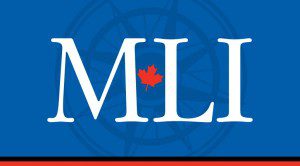 It’s time to recognize that the diversity and inclusiveness we are celebrating in 2017 is built on a foundation that was first laid 150 years ago, writes Geoffrey Kellow.
It’s time to recognize that the diversity and inclusiveness we are celebrating in 2017 is built on a foundation that was first laid 150 years ago, writes Geoffrey Kellow.
By Geoffrey Kellow, Feb. 3, 2017
In the spring of 2016, the Liberal government announced that it was updating the focus of Canada’s sesquicentennial celebration. To mark the anniversary, Heritage Minister Mélanie Joly promised a special focus on “diversity and inclusion, reconciliation with Indigenous peoples, the environment and youth.”
Implicit in the announcement was the suggestion that the country’s 150th birthday was an opportunity for the country to rededicate itself to these laudable goals. Indeed, anniversaries are often opportunities for just such acts of reflection and rejuvenation, both in the lives of individuals and nations.
But what does such a rededication require? At the very least, it requires a serious examination of the original dedication or commitment. To rededicate, we must first recollect. It is this remembrance that seems so strangely lacking in the current government’s celebration plans.
To accentuate the strangeness of this Hamlet without the Prince, consider Canada’s centennial celebrations. Then, the country combined perfectly, in countless projects, the notion of a new and forward-looking nation with the past that the celebrations marked. In the years leading up to the anniversary, monumental biographies of George Brown and John A. Macdonald appeared, concerts and compositions were commissioned, medals pressed, more than two dozen centennial arenas were constructed, and the main highway linking Ontario and Quebec, the two halves of the old Province of Canada, was renamed the Macdonald-Cartier Freeway. In countless ways, then, Canadians populated the national horizon with signposts marking the path that the country had taken and indicating the direction it would go.
To rededicate, we must first recollect. It is this remembrance that seems so strangely lacking in the current government’s celebration plans.
The best commemorations always do this. Consider Martin Luther King Jr.’s remarkable commemorations in the civil rights spring of 1963. In that extraordinary year, Dr. King set out to mark the 100th anniversary of the Emancipation Proclamation, the order that began the process of eliminating chattel slavery that concluded at Appomattox and in the thirteenth amendment to the U.S. Constitution.
In his iconic “I Have A Dream” speech Dr. King invoked implicitly and explicitly Lincoln’s original promise and then, in a profound act of rededication, reformulated that century-old promise as a dream, a vision of the future. Writing months earlier, in his famous Letter from Birmingham Jail, Dr. King also connected the civil rights movement to the American Founding, which he described as one of the “deep wells of American democracy.”
Dr. King understood the past as both the record of the road travelled and source of supplies for the journey to come. This is what our own celebrations appear to have missed, and for reasons that Dr. King would have both understood and rejected.
The focus for Canada 150 on diversity and inclusion appears, on the surface, to demand a turning away from Confederation itself. How can we both celebrate diversity and inclusion and lionize the literally monochrome Charlottetown photo of 25 middle-aged white men? By remembering not just what happened then, but what happened next.
We can only track how far we have come and more importantly, how far we have yet to go, by marking the moment we started out.
The Fathers of Confederation left Charlottetown and almost immediately began a journey both political and practical towards something bigger. That journey continues. At the heart of Confederation was always an acknowledgement of the incredible diversity of the country. Admittedly, the Fathers did not think of inclusion and diversity, in terms of indigeneity, ethnicity, age or environment. Nevertheless, they introduced the principles as surely as the slaveholding Thomas Jefferson introduced to America the assertion of an inherent equality of all.
The Fathers of Confederation, in their legislative debates, introduced a vital resource and set a course. As we celebrate the sesquicentennial, we can rededicate ourselves to our Canadian principles of inclusion and diversity best by recollecting the context in which they first emerged. We can only track how far we have come and more importantly, how far we have yet to go, by marking the moment we started out.
Geoffrey Kellow is an associate professor in the College of the Humanities at Carleton University. He is collaborating with the Macdonald-Laurier Institute on a major project celebrating the speeches and documents of Canada’s founders.




